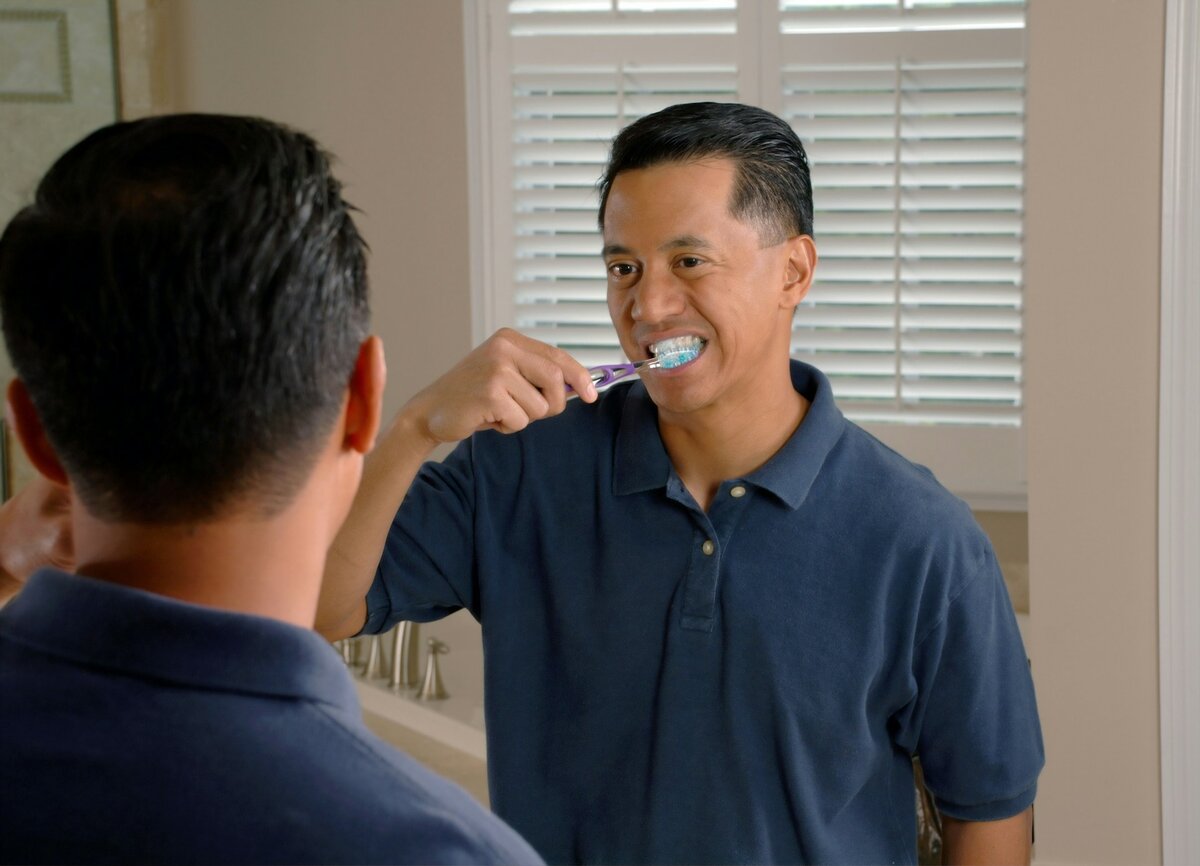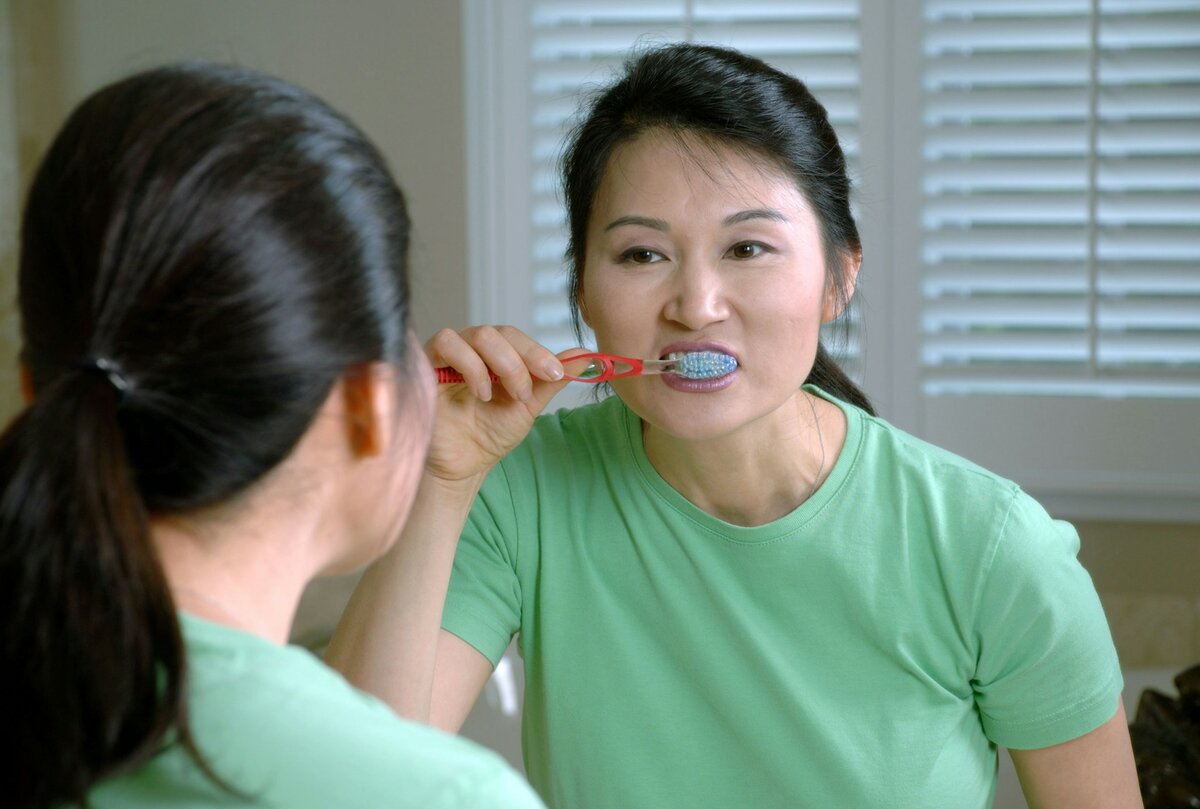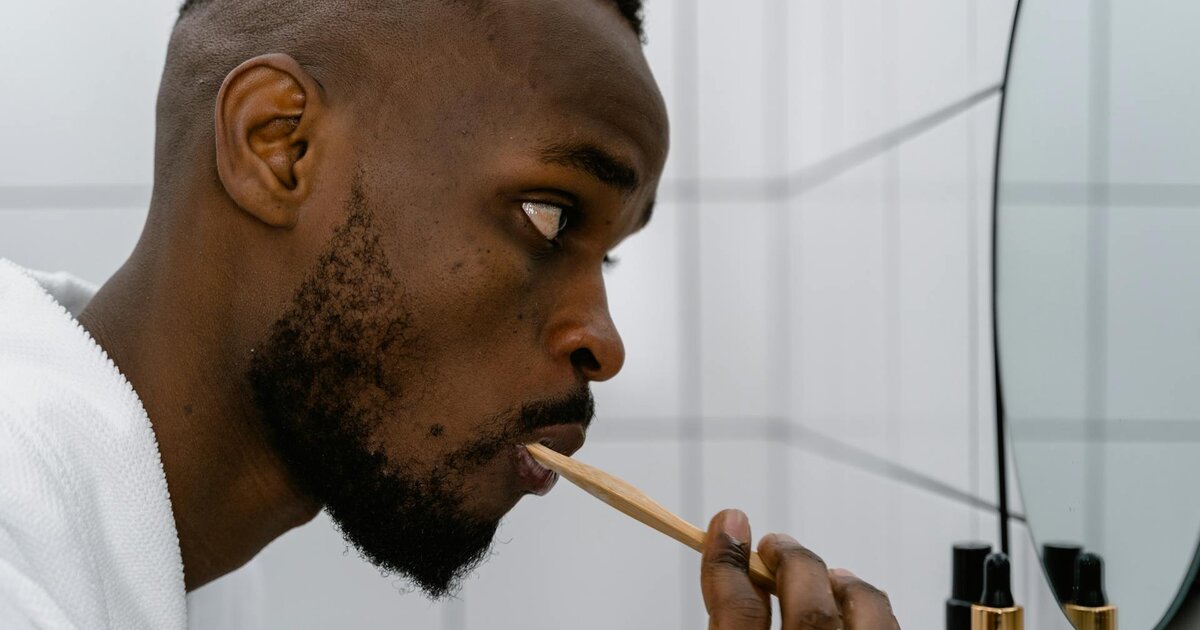Tucking in for the night without brushing might seem harmless, but the truth is, nighttime oral hygiene plays a crucial role in your overall health. As we snooze, our mouth becomes a playground for bacteria, leading to potential issues like cavities and gum disease. Understanding the impact of a clean mouth before bed isn’t just about waking up fresh; it’s a critical defense in maintaining long-term oral health. Let’s dive into why brushing before bed deserves a spot in your nightly routine.
On this page:
The Science of Sleep and Oral Health Connection
When your head hits the pillow and you drift off to dreamland, your body goes into repair mode, and this includes your mouth. Sleep is a critical time for your body to heal and rejuvenate, and this includes maintaining a balanced environment for your oral health. During sleep, saliva production decreases, which normally helps wash away food particles and neutralize acids produced by bacteria in your mouth. Incorporating the habit of brushing teeth at night ensures you’re essentially giving your mouth the helping hand it needs. By removing the food particles and plaque, you’re minimizing the food supply for harmful bacteria that can cause tooth decay and gum disease.
While you’re snoozing, your body’s natural defenses are at work. A clean mouth can enhance your body’s ability to use these defenses effectively. Research has shown a link between oral health and overall health, including how poor oral hygiene can increase the risk of developing certain systemic conditions, like heart disease and diabetes. This connection is particularly important at night, when the repair processes are in high gear.
In fact, some studies suggest that oral infections and inflammation, such as periodontitis, may affect sleep quality and even contribute to sleep disorders like sleep apnea. Since your oral health is tightly woven into the larger tapestry of your body’s well-being, brushing before bed is not just about keeping cavities at bay—it’s about supporting a sleep environment where your body can rest and recover without the added stress of bacterial growth or toothache pain.
Unveiling the Benefits of Brushing Teeth Before Bed
One major benefit of nighttime brushing is the removal of food particles and plaque that have accumulated throughout the day. By clearing away these culprits, you’re significantly reducing your risk of cavities. This is because when you sleep, any remnants of food become a feast for bacteria, resulting in the production of acids that can eat away at your tooth enamel.
Brushing before bed can help combat bad breath. Throughout the day, bacteria build up in your mouth, which can cause a less-than-fresh feeling or odor. A thorough brush before hitting the pillow helps ensure you’re not giving these bacteria a chance to multiply and cause morning breath.

Another benefit is the prevention of gum disease, also known as periodontal disease. Nighttime brushing disrupts colonies of bacteria that settle along the gum line, which could otherwise lead to inflammation, redness, and bleeding, not to mention more severe long-term issues such as tooth loss.
Applying fluoride toothpaste during your night brush provides a protective coat against acid attacks. Fluoride is a mineral that strengthens tooth enamel and reduces the risk of decay. It has more time to work effectively when applied before a long, uninterrupted sleep since there’s no eating or drinking to wash it away.
Consequences of Skipping Brushing Teeth at Night
Plaque, that sticky film you feel when you run your tongue over your teeth, is teeming with bacteria. Now, these bacteria are pretty happy munching away on the sugars left in your mouth. But as they feast, they produce acids as a byproduct. Over time, these acids can start to wear down the enamel of your teeth, which is that hard, protective outer layer. This is how cavities are born.
But it’s not just cavities you have to worry about. The longer plaque and bacteria hang around, the more they irritate your gums. This irritation can lead to redness, swelling, and can even cause your gums to bleed when you brush or floss – a sign of gingivitis, which is the early stage of gum disease.
And let’s not forget about bad breath. Sleeping with a mouth full of bacteria is like leaving garbage out overnight – it’s bound to stink by morning. This can make for an unpleasant wake-up call and potentially embarrassing morning interactions.
If you think you’re saving time by not brushing before bed, consider this: dealing with dental problems down the line will take up a lot more of your time, not to mention money.
Nighttime Brushing Tips for Optimal Oral Health
Always choose a soft-bristled toothbrush for brushing teeth before bed. It’s gentle on your gums and tough on plaque. Next, spend a full two minutes brushing. Picture your mouth divided into four sections and spend 30 seconds on each. Fluoride toothpaste is your best friend here because it works hard to protect your teeth while you sleep.
Before you even start brushing, make sure to floss. It loosens up the bits of food and plaque that your brush can’t reach. After flossing, when you brush, don’t rush. Use gentle, circular motions along the gum line; it’s like a mini-massage for your gums. Don’t scrub too hard, though. We’re aiming for clean teeth, not scrubbed away enamel.

Rinse your mouth after brushing, but skip the mouthwash right after. Using mouthwash immediately can wash away the concentrated fluoride in the toothpaste. Instead, wait a bit or use a fluoride mouthwash earlier in the evening.
And remember, the last thing to touch your teeth at night should be your toothbrush and toothpaste – not snacks or sugary drinks. Eating or drinking after you brush invites bacteria to a feast, and that’s a party you don’t want happening in your mouth overnight.
Addressing Common Excuses for Not Brushing at Night
We get it, the day’s been long and your bed is calling. Yet, when it comes to skipping that nighttime tooth brushing, excuses can pile up fast. Let’s tackle some of the most common ones.
“I’m too tired.” It’s tempting to fall into bed after a tiring day, but think about this: you’re giving plaque a free pass to dance around your teeth all night. And that’s a party you don’t want. A quick brush now can save you from cavities and costly dentist visits later.
“My teeth feel fine.” Even if your teeth seem okay today, germs don’t take a day off. They’re busy making acid from any leftover food in your mouth, which can weaken your teeth over time. Brushing before bed disrupts their groove, helping keep your teeth strong.
“I’ll do it in the morning.” Morning brushing is great, but it can’t undo the hours of acid production that happen overnight. By brushing before you snooze, you’re stopping that overnight bacteria binge in its tracks.
“There’s no food in my teeth.” Food bits are just part of the story. It’s the invisible plaque and bacteria that are the real troublemakers. They don’t need chunks of food to cause harm – they thrive on the sugars and starches left behind from your last meal or snack.
“I don’t want to wake up my partner.” Consider a quiet, battery-powered toothbrush or simply close the bathroom door. Your partner will likely appreciate the effort for mutual oral health.
“It’s just one night.” One night can easily become two, then a week, and so on. Consistency is key in oral hygiene, just like in any good routine. Plus, skipping a brush can leave your mouth feeling less fresh and potentially lead to bad morning breath.
Beyond Brushing: Additional Steps for Bedtime Oral Care
- Flossing. It’s like a backstage pass for your toothbrush, letting it reach the hidden spots between your teeth and under the gumline. Flossing removes food particles and plaque your brush can’t touch, reducing the risk of cavities and gum disease.
- Consider mouthwash as the encore performance. Swishing with an alcohol-free, therapeutic mouthwash can reach areas that brushing and flossing might miss. It helps reduce bacteria, provides a fluoride boost, and leaves your mouth feeling fresh.
- If you’ve got the gear, a water flosser can be a VIP addition to your routine. It’s great for cleaning braces or dental work and can be gentler on the gums than traditional floss.
- Don’t forget your tongue. It can house bacteria and food particles, contributing to bad breath and other oral health issues. Gently brushing your tongue or using a scraper can keep it clean and improve your overall oral health.
- Hydration is key. Drink plenty of water throughout the day and especially before bed. It helps wash away food particles and keeps your saliva flowing, which is nature’s way of protecting your teeth against decay.
Making Brushing Teeth at Night vs. Morning a Habit
Set a reminder on your phone or placing a sticky note on your mirror as a nudge not to skip the brush. It’s also helpful to keep your toothbrush and toothpaste easily accessible. If your bathroom is a trek from your bedroom, consider having a second set of brushing tools handy in your nightstand drawer.
For families, make brushing before bed a group activity. Kids often mimic their parents, so showing them that you prioritize dental health sets an excellent example. Plus, it’s a chance to bond and wind down together.
If you’re someone who tends to crash into bed after a long day, shift your routine to brush right after dinner. This way, even if you’re exhausted later, you’ve already taken care of your teeth. Another trick is to link brushing your teeth with another established part of your bedtime ritual, like changing into pajamas. This pairing of activities can reinforce the habit.
Track your progress. Marking a calendar every night after brushing or using an app to track your routine can give you a sense of accomplishment and help solidify the habit. After a few weeks, you might find that brushing before bed has become second nature, just like locking the front door or turning off the lights. Plus, the payoff of waking up with a cleaner mouth and reducing the risk of dental problems is worth the small effort it takes to make this healthful practice a regular part of your life.
The Lasting Impact of Nighttime Brushing
It’s clear that making the effort to brush our teeth before bed pays off in more ways than one. By embracing this nighttime ritual, we’re not just fighting off cavities and bad breath, but we’re also setting the stage for healthier gums and a brighter smile. The science doesn’t lie about brushing teeth at night vs. morning—taking care of our mouth before bed is crucial for our overall well-being. So, let’s commit to that evening brush, knowing that we’re ending our day on a clean note and waking up fresher and more confident. Keep that toothbrush handy, and let’s look forward to the many benefits that come with a consistent nighttime oral hygiene routine.
